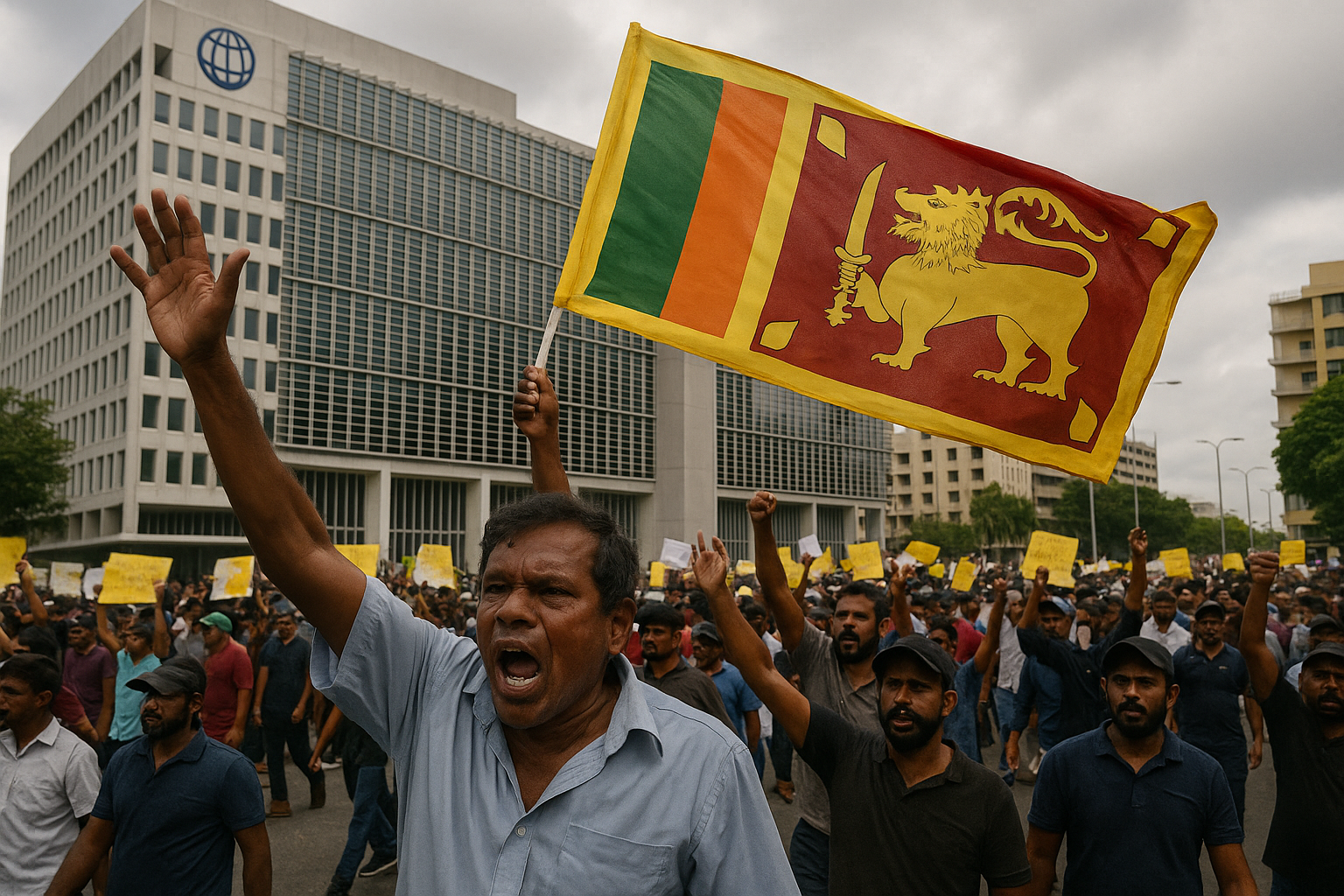Sri Lanka’s survival hinges on urgent tax and spending reforms, says World Bank
The World Bank’s 2025 report on Sri Lanka warns that years of weak revenue, heavy debt, and unchecked spending have pushed the country into default, demanding urgent fiscal reforms. It calls for stronger tax systems, smarter spending, and targeted social protection to restore stability and rebuild confidence.

The World Bank’s 2025 report Towards a Balanced Sri Lanka: Public Finance Review – Fiscal Adjustment, prepared with contributions from its research teams in Washington and Colombo, delivers an unflinching assessment of the country’s battered public finances. The review situates the crisis in a long pattern of fiscal mismanagement, where years of unsustainable borrowing, revenue erosion, and unchecked spending collided with external shocks, including the COVID-19 pandemic and global price surges. The combination of weak fundamentals and external pressures culminated in Sri Lanka’s first-ever sovereign default, leaving the economy exposed and citizens facing severe hardship. According to the report, restoring stability will require nothing less than a comprehensive and credible fiscal reset.
Revenue Collapse and Debt Burden
At the heart of the crisis lies a structural imbalance. Government revenue has sunk to less than nine percent of gross domestic product, one of the lowest ratios in the world, eroded by repeated tax cuts and a narrow base. This erosion has coincided with ballooning public expenditure, from public sector wages to subsidies and interest costs. Debt has climbed above 100 percent of GDP, leaving interest payments to consume a growing share of resources. The World Bank highlights the dangerous reliance on external commercial borrowings, which has amplified refinancing risks and currency exposure. When markets closed their doors, Sri Lanka had no option but to default, further undermining investor confidence.
Tax Reform at the Core
The review stresses that fiscal consolidation cannot happen without a sweeping overhaul of the tax system. The government’s overdependence on exemptions and concessions has hollowed out its ability to mobilize resources. The World Bank urges a revival of the value-added tax with a broader base, the reduction of exemptions, and tougher compliance measures. Property taxation is identified as a largely untapped instrument, while digitization and modern enforcement practices could strengthen administration. Without decisive revenue reforms, the report warns, Sri Lanka will lack the fiscal space to invest in public services or meet its debt obligations, perpetuating a cycle of crisis.
Spending Smarter, Protecting the Poor
The path to stability also requires disciplined expenditure management. Blanket austerity, the report cautions, risks aggravating inequality and undermining essential services. Instead, spending should be reprioritized to safeguard health, education, and social protection, areas that matter most for long-term equity and growth. Subsidies on fuel, electricity, and other utilities, which disproportionately benefit wealthier households, are singled out as wasteful. Loss-making state-owned enterprises, especially in energy, are described as fiscal drains in urgent need of restructuring. To protect the vulnerable, the report proposes strengthening targeted cash transfers, using digital identification and payment systems to ensure that assistance reaches those who need it most. By redirecting funds away from untargeted subsidies and inefficient enterprises, Sri Lanka can both save money and serve its citizens better.
Building a Credible Framework for Reform
For reforms to stick, the World Bank emphasizes the importance of embedding fiscal adjustment in a transparent and accountable framework. A medium-term strategy with clear fiscal rules, credible budgeting, and robust oversight would help restore public trust. The sequencing of reforms is seen as vital: frontloaded revenue measures could provide quick relief and unlock external financing, while gradual reforms on expenditure and state-owned enterprises would secure sustainability over time. Political will is identified as the linchpin of success. Without commitment at the highest levels, fiscal reforms may falter, leaving the country vulnerable to recurring crises.
The report concludes that Sri Lanka stands at a crossroads. Without action, the country risks sinking deeper into cycles of instability and austerity. But with a balanced package of revenue mobilization, efficient expenditure management, and strengthened safety nets, it can regain control of its finances and rebuild economic confidence. The challenge is immense, yet the opportunity is equally significant: a chance to reset the foundations of public finance and pave the way for sustainable and inclusive growth.
- READ MORE ON:
- World Bank
- Sri Lanka
- Colombo
- public finances
- FIRST PUBLISHED IN:
- Devdiscourse
ALSO READ
World Bank Warns Climate Change Could Cut Uganda’s Growth by 3.1% by 2050
World Bank Warns Vietnam: Water Insecurity Threatens Growth Without Bold Action
World Bank: Côte d’Ivoire Growth Strong, Needs Tax Reform to Cut Poverty
Sri Lanka, World Bank Launch $100m Project to Boost Farming and Climate Resilience
World Bank Projects Viet Nam’s Economy to Grow 6.6% in 2025 Amid Strong Start










